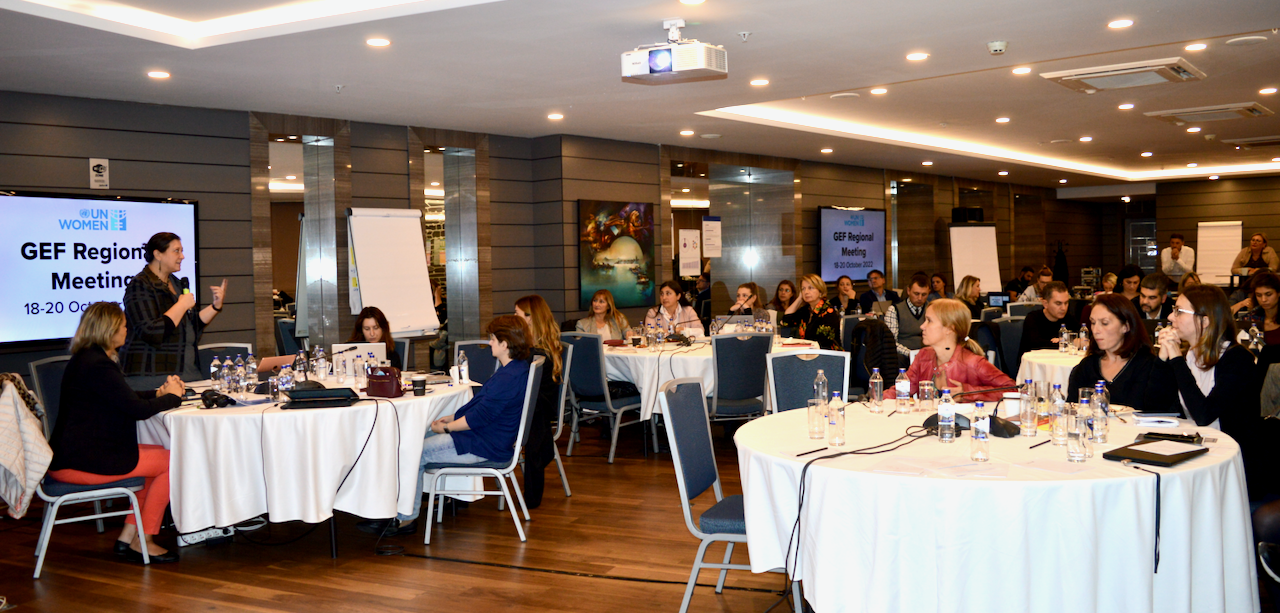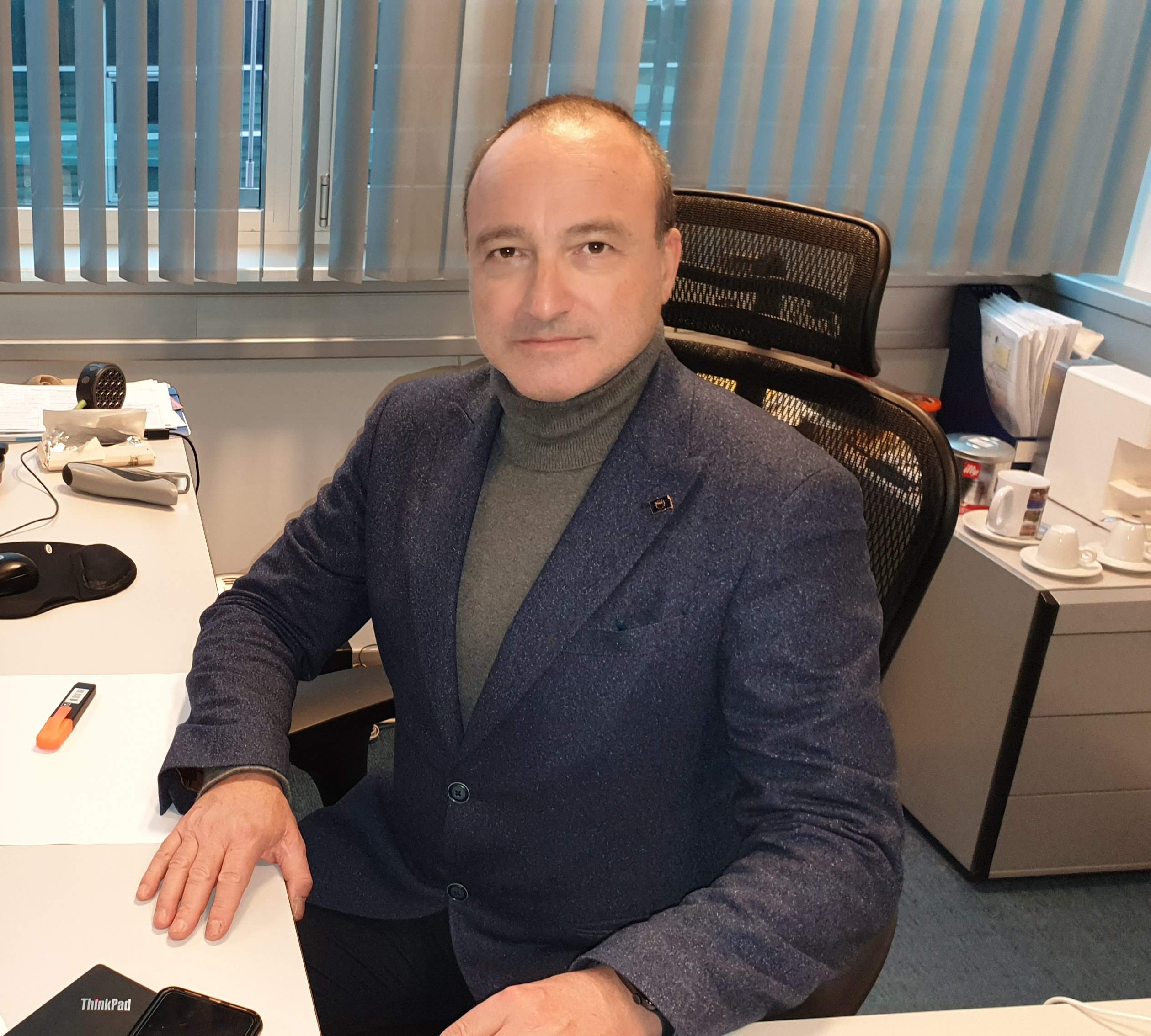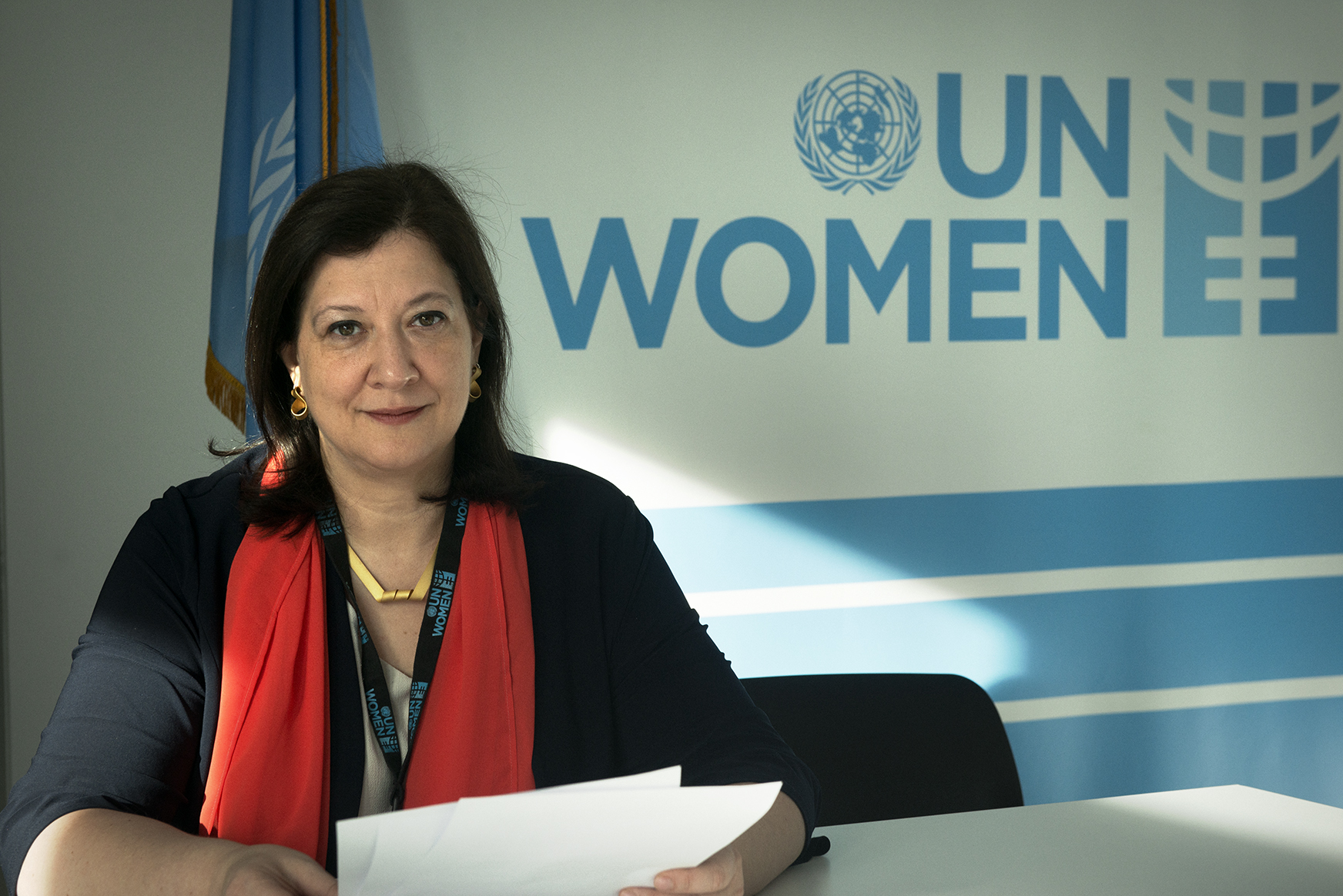Highlighting the Gender Equality Facility as a unique model for gender mainstreaming in the EU pre-accession and accession process, Alia El-Yassir, UN Women Regional Director for Europe and Central Asia, said: “The GEF works with EU integration structures through a standardized and yet customized approach built on solid principles of partnership and collaboration that place gender equality mechanisms and institutions at the center of joint efforts.”
Western Balkans and Eastern Partnership countries discuss EU programme for the promotion of Gender Equality
Date:

Over 40 government officials from the Western Balkans and Eastern Partnership countries, together with European Union (EU) delegates and UN Women officials met in Istanbul from 18 to 22 October to learn and share best practices and lessons learned on gender mainstreaming in the EU integration process, as well as on the effective implementation of the Gender Equality Facility (GEF) | EU4 Gender Equality initiative.
GEF is designed to support countries ensuring that through the EU pre-accession process, gender equality is mainstreamed across sectors and that the EU gender equality acquis is successfully addressed to provide more equitable socioeconomic development outcomes for women and men, girls and boys, in the EU candidate and neighborhood countries. The acquis refers to all the relevant EU Treaty and EU Charter of Fundamental Rights provisions, legislation, and the case law of the Court of Justice of the European Union in relation to gender equality.
Speaking on behalf of the Directorate-General for Neighbourhood and Enlargement Negotiations (DG NEAR), Stefano Ellero, Head of Cooperation of the European Union Delegation to Bosnia and Herzegovina, stressed the EU’s commitment to women’s rights and sustained work with partners to achieve transformative change. “Equal rights for women are a fundamental value for the EU and should be respected in all spheres in the fulfilment of international and EU standards. Through sustained work with our partners and constant gender equality advocacy, we can achieve change,” he noted.
“Equal rights for women are a fundamental value for the EU and should be respected in all spheres in the fulfilment of international and EU standards."

“The GEF is built on solid principles of partnership and collaboration that place gender equality mechanisms and institutions at the center of joint efforts.”

In addition to learning more about the initial steps of the GEF initiative as well as features of the Instrument for Pre-Accession Assistance (IPA) III and the Gender Action Plan, representatives from Albania, Bosnia and Herzegovina, Kosovo1, North Macedonia and Serbia presented their best practices in key areas of alignment with EU gender policy within the EU accession process. Participants from the Eastern Partnership countries -Georgia, Moldova and Ukraine- also provided status updates from their national perspective.
On the last day of the meeting, the event hosted bilateral exchanges of experience, giving participants the opportunity to have one-on-one sessions with government officials, gender institutional mechanisms, EU Delegations gender focal points and UN Women GEF teams to further discuss how to strengthen cooperation and enhance the implementation of the initiatives.